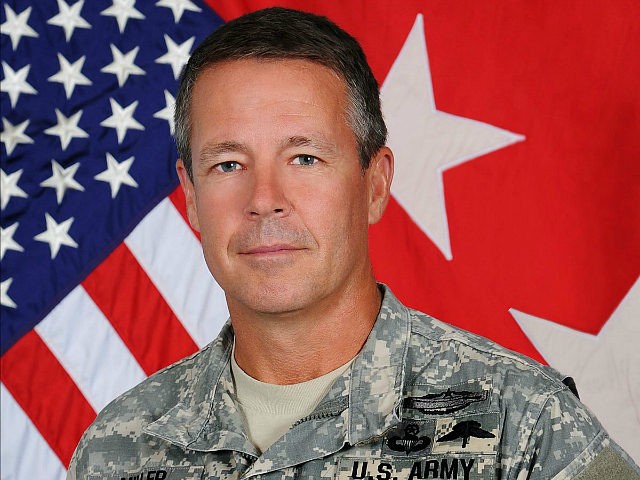Senators on the Armed Services Committee from both sides of the aisle expressed growing impatience and skepticism with the U.S.-led war in Afghanistan during a hearing on Tuesday to vet the next incoming commander, Army Lt. Gen. Austin “Scott” Miller.
“To continue to do the same thing is not acceptable,” said acting Committee Chairman Jim Inhofe (R-OK).
Sen. Gary Peters (D-MI) said that the U.S. has spent more money on rebuilding Afghanistan than it spent on the Marshall Plan, at more than $125 billion. “Tell me what you think we need to be doing differently,” he asked.
Sen. Elizabeth Warren (D-MA) read from a list of optimistic statements from previous U.S. commanders throughout the past decade who each declared that Afghanistan was “turning a corner” or had reached a “turning point.”
“We’ve turned the corner so many times it seems we are going in circles,” she said. “Our military should not and cannot be in Afghanistan forever.”
The U.S. first invaded Afghanistan in 2001 to topple the Taliban from power after it allowed terrorist group al-Qaeda to seek safe haven and plan the September 11, 2001, attacks against the United States from Afghanistan’s border region with Pakistan.
But after the military successfully routed the Taliban, the U.S. government engaged in a protracted struggle to build a functioning Afghan government and military in order to prevent the Taliban from coming back to power and allowing al-Qaeda safe haven again. That effort has been beset by continuing corruption and Taliban fighters seeking safe haven in Pakistan.
Miller agreed that the U.S. needed to be “good stewards” of taxpayer money. “Fraud, waste and abuse cannot be tolerated,” he said.
He also promised not make statements about “turning a corner” unless he meant them, but he expressed optimism that the current U.S. strategy under the Trump administration was having a positive effect.
The Trump administration last year announced its new strategy, which got rid of any timelines for U.S. troop withdrawal; sent more troops to train and advise Afghan forces; relaxed U.S. rules of engagement against the Taliban; gave commanders in the field more authority to make decisions; and called for a harder line against Pakistan while drawing closer to India.
Miller praised the introduction of U.S. Army Security Force Assistance Brigades to work with Afghan forces at the brigade and battalion levels. He said in his three previous tours in Afghanistan, he has seen the concept of working closely with Afghan security and police forces work.
“I’m confident that this is going in the right direction,” he said.
Miller said he believed the current military strategy is supporting the political objective to get the Taliban to come to the negotiating table and that the current nationwide ceasefire between the Afghan government and the Taliban at least “starts a conversation.”
He argued that if the U.S. were to precipitously withdraw from Afghanistan, the Taliban could take over and allow al-Qaeda to once again seek safe haven in the country and plan another attack on the U.S. There is a “real threat” of that happening, he said.
Some senators seemed unswayed.
Sen. Angus King (I-ME) questioned whether the Taliban would actually let al-Qaeda seek safe haven there again and questioned why it was so crucial to prevent terrorists from finding safe haven in Afghanistan when terrorists are “mobile” and exist in other countries.
Miller said Afghanistan was unique because it has a functioning government.
“I understand, but I really don’t,” King replied.
But Miller strongly indicated that there was much room for progress with Pakistan.
“We ought to have very high expectations of them,” he said. “We have to squeeze out safe havens if we are to be successful here.”
The Pakistan government insists it is doing more to stop the flow of fighters and illicit goods transiting the border, including by building a fence between the two countries, but its ability to enforce control is unclear.
If confirmed, Miller would be the 18th commander of the Afghanistan War and its ninth U.S. commander.
Miller has served as the commander of Joint Special Operations Command since 2016. He participated in and was wounded in the Battle of Mogadishu in 1993. He is a West Point graduate and served in the 82nd Airborne Division and in the 75th Ranger Regiment. He has served as the commanding general at the U.S. Army Maneuver Center of Excellence at Fort Benning.
Sen. Richard Burr (R-NC), who introduced Miller at the hearing, called Miller the “right man” for the job.
“There’s a reason the troops under him follow him. Scott Miller is a tremendous leader,” he said. “A great father … a great man. This is the full package.”

COMMENTS
Please let us know if you're having issues with commenting.